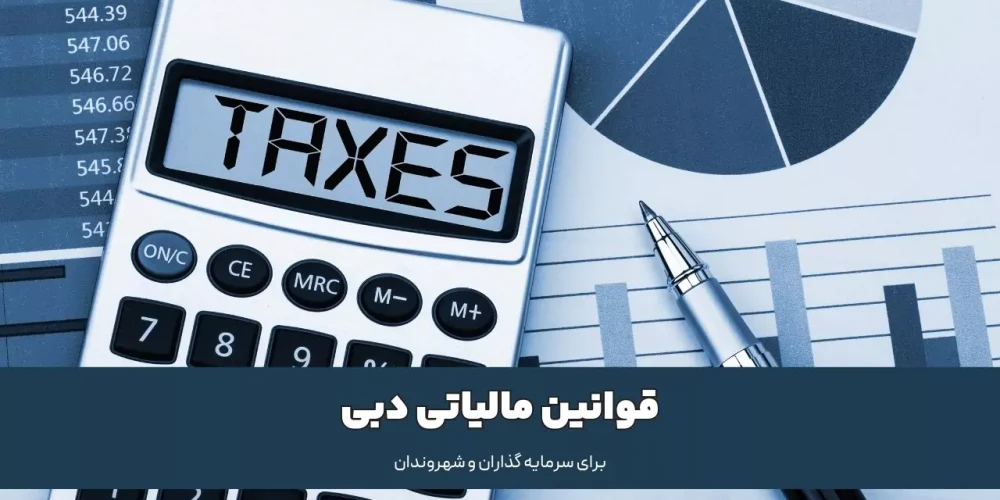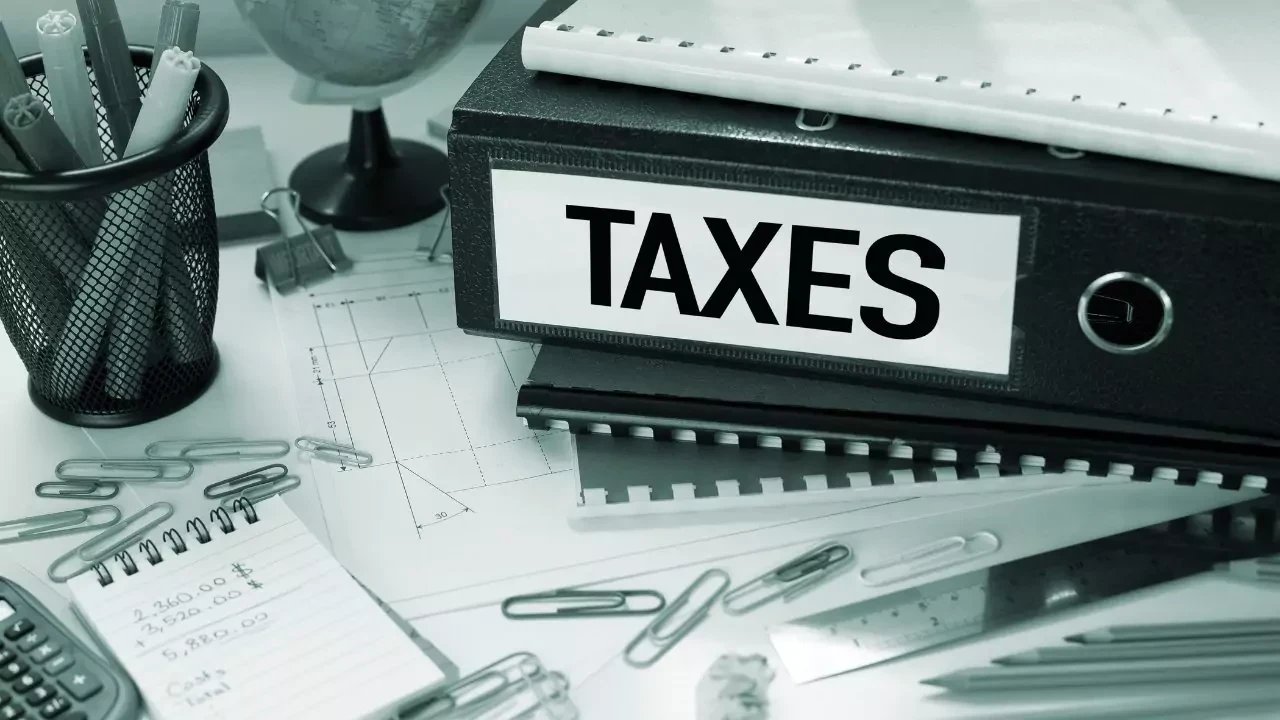
Dubai Tax Laws | Benefits and Exemptions for Iranian Investors
The United Arab Emirates, especially the city of Dubai, has in recent years become one of the most important economic hubs in the region and the world. A combination of innovative tax policies, political stability, advanced infrastructure, and a competitive business environment has made this country an attractive destination for international investors. While many countries face complex and costly tax systems, the UAE, by offering a simple, transparent, and relatively low-cost structure, provides a safe and profitable environment for entrepreneurs.
The absence of personal income tax, low corporate income tax rates, and the extensive development of free trade zones are the three main pillars of this tax appeal. However, in line with global efforts to combat tax evasion and increase financial transparency, the UAE’s tax laws have also undergone significant changes—changes that every investor, especially Iranians seeking to establish a company in Dubai or expand their business, must be aware of.
This article aims to provide a comprehensive and practical picture of the UAE’s tax structure—from rates and exemptions to legal obligations and advantages for Iranian businesses. If you plan to invest in Dubai or establish a company, studying this guide can clarify your decision-making path.
Tax Structure in the UAE
One of the most prominent features of the UAE’s economy is the absence of personal income tax. In many countries, individuals pay a portion of their income as tax, but in the UAE there is no such obligation. This creates significant appeal for professionals, foreign workers, and entrepreneurs, which is why the UAE has managed to attract many skilled professionals from around the world.
In other words, the UAE’s tax structure is designed to support business activities and attract investment, which explains the wide presence of international companies in the country. However, in recent years, changes have been introduced to align with global standards.
Corporate Income Tax
One of the major changes in the UAE’s tax system was the introduction of corporate income tax in 2023. This law is considered a turning point in the UAE’s economic history.
According to the new law:
- Taxable income up to AED 375,000: 0%
- Income above AED 375,000: 9%
This rate remains very low compared to many countries, meaning investors are not heavily burdened. In addition, from January 2025, for multinational companies with global revenues above €750 million, a 15% (DMTT) rate will apply.
This measure is part of the UAE’s commitments to international tax agreements aimed at preventing profit shifting by large corporations to low-tax countries.
Value Added Tax (VAT)
Since 2018, the UAE has implemented Value Added Tax (VAT) for the first time. This decision was part of the government’s strategy to increase non-oil revenues. The VAT rate in the UAE is 5%, which is much lower than in many other countries.
- VAT Rate: 5%
- Mandatory registration threshold: AED 375,000 per year
- Voluntary registration threshold: AED 187,500 per year
Goods and services such as healthcare, education, and exports are either exempt or taxed at zero rate. This is a significant advantage for companies engaged in exports.
VAT implementation has also pushed businesses toward more accurate accounting, as any mistake in recording and reporting may lead to penalties.

Excise Tax
Excise tax in the UAE applies to products that have negative effects on public health or the environment. The main goals of this policy are twofold: first, to reduce the consumption of high-risk goods such as sugary drinks, tobacco, and energy drinks, and second, to generate part of the government’s non-oil revenues.
Excise Tax Rates in Dubai (2025):
- 50% on sweetened beverages (except plain soda water)
- 100% on energy drinks
- 100% on tobacco and all related products, including e-cigarettes and their liquids
- 50% on all products containing added sugar or artificial sweeteners
Details of sugar-containing products:
This includes all industrial beverages with added sugar or sweeteners, such as:
- Packaged juices with added sugar or glucose
- Sweetened carbonated drinks (except plain soda with no additives)
- Ready-to-dilute syrups and instant beverages (like powdered drinks or fruit syrups)
- Sweetened dairy drinks such as industrial milkshakes
By contrast, 100% natural fruit juices with no added sugar, plain milk without additives, and drinks completely free of sweeteners are exempt.
Planned Changes for 2026:
From early 2026, the tax on sweetened beverages will be applied progressively based on sugar content per 100 ml. This means lower-sugar drinks will fall into a lower tax bracket, while high-sugar drinks will face higher rates. The aim is to encourage manufacturers to reduce sugar content.
Who is subject to excise tax?
All companies and legal entities in the UAE that import, produce, or store excise goods must:
- Register with the Federal Tax Authority (FTA).
- Submit tax returns regularly (usually quarterly, unless FTA specifies otherwise).
- Pay tax at the end of each designated period.
Excise tax serves both as a revenue source and a tool to reduce harmful consumption and promote public health.

Exemptions and Tax Relief Options
In addition to base corporate tax rates, there are certain exemptions and relief options available for eligible companies. These help reduce tax burdens or provide flexibility in reporting. The main ones include:
- Realization basis: Tax applies only when actual profit or loss is realized (e.g., asset sale), not on paper value changes.
- Transition rules: Guidelines supporting companies shifting from the old to the new tax system.
- Loss relief: Companies can offset losses against past or future profits to reduce taxable income.
- Qualifying group relief: Group companies can transfer losses or tax credits among themselves.
- Small business relief: Designed to support small companies by reducing their tax pressure.
- Business restructuring relief: Certain transfers during mergers or restructuring may be exempt.
Free Zones
Free zones are among the UAE’s greatest attractions for foreign investors. There are over 40 free trade zones in the UAE, each with specific conditions and benefits. Companies established in these zones generally enjoy:
- Exemption from corporate income tax (for a fixed or unlimited period)
- 100% foreign ownership
- No restrictions on profit and capital repatriation
- Modern infrastructure with easy access to ports and airports
However, free zone companies wishing to operate in the UAE mainland are subject to general tax laws.
Mainland vs. Free Zone Tax Differences
The key difference lies in freedom of operation and tax obligations.
- Free Zones:
Broad tax exemptions
Full foreign ownership
Limited ability to trade directly in the UAE domestic market - Mainland:
Full access to the domestic market
Subject to general tax rates
Direct collaboration with government and national projects
Many companies register in free zones to benefit from tax advantages while also establishing a branch or representative office in the mainland.

Business Tax Obligations
The new tax regime in the UAE has increased businesses’ legal obligations. Companies must:
- Register with the FTA if exceeding the threshold.
- File periodic reports (monthly or quarterly for VAT, annually for corporate tax).
- Maintain transparent accounting and keep financial records for at least five years.
- Cooperate with FTA in case of audits or inspections.
Though this may be costly for some small businesses, it ultimately boosts transparency and investor confidence.
Impact on Iranian Investors (with real examples)
Iranian investors have long chosen Dubai as a safe destination for investment. Geographic proximity, ease of travel, and the large Iranian community in Dubai make the city ideal. The new tax laws bring both opportunities and challenges for Iranians.
Opportunities:
- Low corporate tax rates compared to many countries
- Free zone exemptions
- Access to international markets and modern infrastructure
Challenges:
- Need to comply strictly with tax laws
- Accounting and consulting costs
- Full transparency in financial reporting
Iranians play a significant role in Dubai’s economy—from restaurants and shops to trading, transport, and IT companies. The new tax rules bring both opportunities and challenges for them.
Example 1: An Iranian restaurant in Dubai
Suppose an Iranian restaurant in Dubai earns AED 1,000,000 annually, with net profit of AED 400,000 after expenses.
- Up to AED 375,000: tax exempt.
- On the excess AED 25,000: 9% tax → AED 2,250 payable.
Though not large compared to operational costs, the restaurant must apply 5% VAT on customer invoices and remit it to the FTA—requiring precise accounting systems.
Example 2: An Iranian trading company
An Iranian trading firm importing goods from China and re-exporting them via Dubai, if registered in a free zone, enjoys extensive exemptions. Exports are zero-rated for VAT, and corporate tax exemption applies in free zones. But if the company sells goods in the domestic UAE market, VAT and corporate tax apply like other mainland firms.
Example 3: An Iranian tech startup
An Iranian startup in software and AI may not earn much initially. If profits stay below AED 375,000, no corporate tax is due. Additionally, the startup can use small business relief to reduce administrative and accounting costs—making Dubai highly attractive for Iranian tech entrepreneurs.
Fu

ture Outlook of the UAE Tax System
The UAE tax system, especially in Dubai, has been rapidly evolving in recent years. The introduction of VAT in 2018 and corporate tax in 2023 shows the country’s shift toward a modern tax framework aligned with global standards.
- Alignment with international agreements: As a financial hub, the UAE must comply with OECD and G20 frameworks. The global minimum tax (15% for multinationals) from 2025 is an example. More transparency and cooperation with global bodies can be expected.
- Digitization: The FTA is moving toward digital platforms—e-invoicing, online filing, and potential AI use in financial analysis will become essential. This simplifies business processes while enabling stricter government oversight.
- Possible rate increases: While the current 9% corporate tax is among the lowest globally, the UAE may gradually raise rates to finance infrastructure and reduce oil dependency. Still, rates are unlikely to reach European or US levels, as Dubai must maintain its competitive edge.
- Stronger focus on transparency and AML: Foreign investors, especially in free zones, should expect tighter controls, broader reporting, and compliance with global anti-money laundering (AML) standards.
In summary, Dubai’s future tax regime will blend digital innovation, global transparency, and investment appeal.
Conclusion
Dubai’s tax system, though recently changed, remains one of the most competitive worldwide. The absence of personal income tax, relatively low and fixed corporate tax rates, and diverse free zones with unique incentives make the UAE a safe haven for investors.
For Iranian investors, this structure provides a unique opportunity. However, full benefit requires precise knowledge of new laws, expert consultation, and financial transparency at every step. From choosing the right location to meeting thresholds, every decision affects profitability and business sustainability.
As global tax standards grow stricter, the UAE aims to balance attracting capital with meeting international obligations. For entrepreneurs and investors who manage these complexities properly, Dubai will remain one of the safest, most profitable, and most predictable investment destinations in the region.
Frequently Asked Questions
Do all companies have to pay tax?
No. Companies with annual income below AED 375,000 are exempt from corporate tax.
Is VAT registration mandatory?
Yes. If a company’s annual turnover exceeds AED 375,000, VAT registration is required.
How is tax calculated for small businesses?
Small businesses pay 9% tax only on profits above AED 375,000. For lower amounts, the rate is 0%.
Are free zone businesses always tax-exempt?
No. If a free zone company operates in the UAE domestic market, it is subject to general tax laws.
Do Iranians face restrictions in registering companies?
No. Like other foreign nationals, Iranians can own 100% of a company in free zones and register their business.














Reviews
Please submit your comment.
It will be displayed after the approval of admins.
To do this, please login first
No comment submitted yet